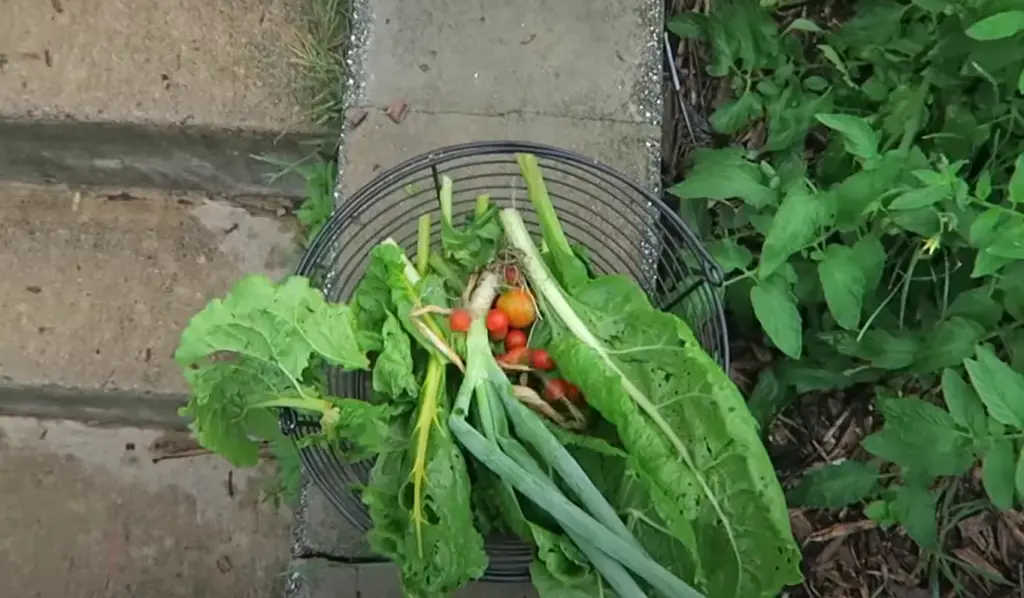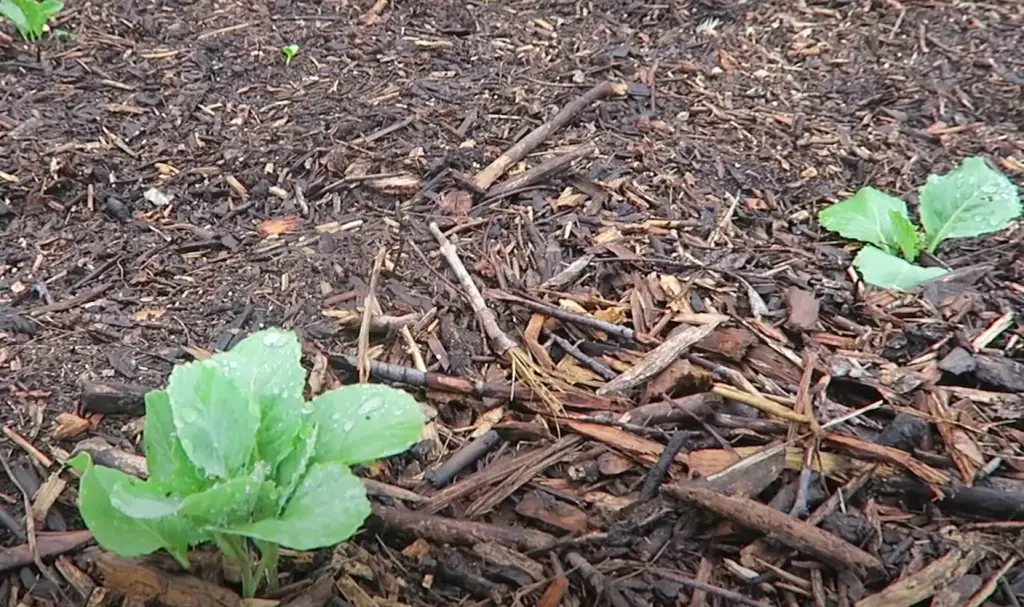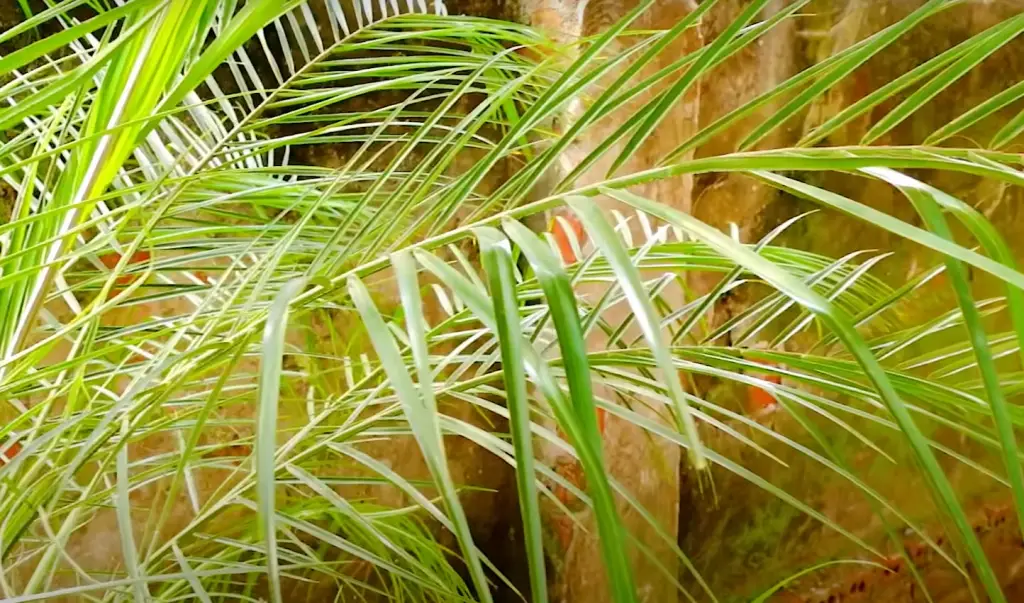Are you looking for an exciting way to spruce up your garden? Consider adding a chicken coop! Chickens are easy to care for, provide eggs and fertilizer, and can become beloved pets. Plus, they will add delightfully unique accents to your garden.
Whether you’re a beginner or experienced gardener, these inspiring chicken garden ideas will help you create the perfect home for your feathered friends. From creative designs that provide shelter from the elements to clever ways of utilizing space in even the smallest gardens – get ready to be inspired!
Why Grow A Chicken Garden?
When planning your chicken garden, it can be helpful to consider the multitude of benefits that come with raising chickens.

Not only do chickens provide a valuable source of fresh eggs and fertilizer for your other plants, but they can also be an excellent addition to your family. Chickens are easy-going animals that form close bonds with their human owners, so you’ll likely find yourself quite attached to them in no time!
Save Money On Chicken Feed
Raising chickens in your garden can be an economical and sustainable way to produce your own eggs. You’ll find that by utilizing the plants and insects that come with a chicken garden, you can save money on expensive commercial feed. A variety of greens, flowers, weeds, and bugs will provide them with the necessary nutrients they need while naturally enriching the soil. [1]
Make Healthy Food For Your Flock
One of the most important things you can do for your chickens is to provide them with healthy, nutritious food. There are a number of ways to do this in a chicken garden. You can grow edible plants and herbs like wheatgrass, kale, parsley, and basil that are packed with vital nutrients and minerals that will help keep your flock healthy. You can also provide your chickens with bugs, worms, and other small insects that they enjoy snacking on. Growing edible plants and providing supplemental foods is an easy way to make sure your chickens have access to the nutrition that they need.
It Can Feed Your Family Too
One of the great benefits of having a chicken garden is that it can feed your family too. Not only will you get to enjoy fresh eggs daily, but you can also use chickens for meat.
Also, be sure to research the best breeds for meat production.There Are Plenty Of Uses For Herbs In The Chicken Coop
Herbs can be an important part of the chicken garden. Many herbs have medicinal qualities that can help keep your chickens healthy, and many other herbs have insect-repelling properties that can help ward off pests from the coop.

Herbs such as Basil, Sage, Lavender, Rosemary, Thyme, and Mint are all great options to grow in the chicken garden. Not only do they provide health benefits and ward off pests, but they also give your chicken garden a wonderful aroma that will make it even more enjoyable for you and your chickens.
Chickens Help With Garden Pest Control
Chickens are great for controlling pests in the garden. Unlike chemical sprays, chickens can feed on insects and other pests without causing damage to plants. They also help by eating weed seeds, which reduces the need for weeding and tilling. Keeping chickens in the garden can help you achieve a more natural pest control system that is safer for you, your plants, and the environment. [2]
What To Plant In Your Chicken Garden
The key to creating a successful chicken garden is selecting the right plants for your chickens. Not all plants are suitable for chickens, so it’s important to do some research and consider what will work best for your flock. Here are some of the most popular plant choices for chicken gardens:
Herbs For Your Chicken Garden
Herbs are an excellent choice for your chicken garden. Herbs like oregano, rosemary, basil, and thyme offer a range of benefits to the chickens in your garden. These herbs can help to repel pests, boost health and immunity, and improve flavor in eggs. These herbs also add visual interest to your garden, making it a more attractive space. When planting herbs in your chicken garden, be sure to give them plenty of room for growth and pay attention to their specific needs for light, water, and soil. Adding herbs to your chicken garden is a great way to create a healthier and more vibrant environment for your chickens.
Herbs To Support Chicken Immune Health
Herbs are an important part of any chicken garden. Not only do they provide a delicious, fresh crop for the chickens to snack on but also many herbs have medicinal properties that can help keep your feathered friends healthy. Some especially beneficial herbs for supporting a chicken’s immune system include oregano, garlic, thyme, and rosemary.

Oregano is a powerhouse of nutrition and can provide chickens with vitamins A, C, and K as well as iron and calcium. It also contains carvacrol which has antiseptic properties that help fight bacteria and fungus in your birds’ bodies. Garlic is another great herb for supporting chicken health because it is an antibacterial, antifungal, and antiviral. Thyme helps stimulate the immune system and has antioxidant properties that can help reduce inflammation in your chickens. Rosemary is a great source of antioxidants which help combat free radicals and keep their cells healthy.
Chicken-Friendly Edible Plants
When it comes to adding plants to your chicken garden, select those that are safe for poultry consumption and look aesthetically pleasing in the setting. Here are a few edible plants you can use to create an inviting garden for your flock:
- Radishes: These vibrant-colored vegetables are easy to grow, just be sure not to harvest them too quickly, as the flavor tends to get bitter when overripe.
- Spinach: A source of iron and vitamins A and K, spinach is a favorite among chickens. It’s also great for salads or smoothies.
- Lettuce: Not only does lettuce provide your flock with a tasty meal, but its leaves are also a great source of hydration.
- Tomatoes: Rich in vitamins A, C, and K, tomatoes make a great addition to any chicken garden. [3]
Tips For Your Chicken Garden
Creating a chicken garden can be an exciting and rewarding experience, but it’s important to follow some basic guidelines to ensure the health and safety of your flock.
Avoid Toxic Plants
When deciding what plants to add to your chicken garden, make sure you are avoiding any plants that may be toxic or dangerous for chickens. Some popular plants with potentially harmful effects include tomatoes, rhubarb, and potatoes.
Chickens Love Digging
When you’re creating your chicken garden, it’s important to remember that chickens love to dig and scratch around in the dirt.

They use their beaks to uncover small insects or grubs, and they enjoy scratching through the topsoil looking for tasty treats. To make sure your chickens are able to get enough of this activity, create areas of looser soil with plenty of rocks, leaves and logs for them to explore. Adding organic matter like compost can help make these areas even more attractive for digging.
Protect Your Plants With Barriers
In any chicken garden, you’ll need to protect your plants from the chickens. While you want your chickens to forage and enjoy the garden, you don’t want them decimating it in one go! The best option is to use a barrier between the chickens and your plants. This will stop them from getting too close. Depending on which type of barrier you choose, this can be done with fencing or netting – either way, make sure it’s strong enough to withstand scratching claws and pecking beaks! You may also need to think about special protection for vulnerable young shoots or those that are particularly tasty to chickens. Protecting these areas with a wire mesh or hinged cover will help them grow into healthy mature plants. Another important thing to consider when protecting your plants is the height of the barrier – if it’s too low, chickens can still get over it and cause damage. Make sure that any fencing you use is at least four feet high, or higher if necessary!
Plan To Incorporate Hardscaping
One of the best ways to add structure and visual interest to your chicken garden is by incorporating hardscaping elements. These can include things like pathways, walkways, retaining walls, or other decorative structures made out of stone, brick, or concrete.
You can also use pathways as an opportunity to add some color and texture with mosaics or patterned stones. Retaining walls can be used to create raised beds for growing vegetables that will not be disturbed by curious chickens. Additionally, these walls can serve as a backdrop for hanging plants or vines that will also provide shade for your chickens. Don’t forget to add a few seating areas where you can relax and enjoy watching your feathered friends! [4]FAQ
What are the best vegetables to grow for chickens?
Some of the best vegetables to grow for chickens are leafy greens such as romaine lettuce, kale, and Swiss chard. Root vegetables like carrots, turnips, and beets are also excellent options.

Other garden favorites like squash and pumpkins can provide added nutrition too. It’s always important to rotate these choices seasonally to ensure freshness in your flock’s diet.
What are the best plants in the garden for chickens?
When it comes to creating a chicken garden, you’ll want to make sure it’s stocked with plants that are not only attractive and aesthetically pleasing but also beneficial for your chickens. The best plants in the garden for chickens include herbs, grasses, flowers, shrubs and trees. Herbs such as oregano, rosemary and thyme are great sources of nutrition for chickens while providing them with delicious flavors they can enjoy. Grasses like alfalfa, clover and rye create areas of shade or shelter where chickens can cool off during hot days. Flowers like marigolds and borage attract bees that will help pollinate other plants in the area. Shrubs like lavender add beauty to the landscape while providing shelter for your chickens. Finally, trees like oak and apple provide a shady spot for chickens to rest during the day as well as offer protection from predators.
What is the best ground cover for chickens?
When creating a chicken garden, the ground cover is one of the most important elements. It provides insulation to keep chickens warm in cold weather, protects their feet from rough surfaces, and prevents predators from entering the garden. Not all ground covers are created equal, however, so it’s important to research what type of cover will work best for your particular situation. Some popular options include mulch materials such as wood chips or hay. These materials have the added benefit of retaining moisture and providing extra nutrition for chickens that like to eat soil. If you’re looking for something more durable, gravel or sand can be an excellent choice; both provide great drainage and won’t get too muddy in wet weather.
What plants are used to treat chickens?
There are a number of plants that can be used to treat chickens. These include: garlic, rosemary, dill, oregano and lavender. Garlic has antiviral, antibacterial, antifungal and antiparasitic properties which can help protect your chickens from infections and parasites. Rosemary helps improve digestion and also supports healthy immune systems in poultry. Dill is known for its calming effects on birds and also helps with respiratory issues. Oregano helps strengthen the immune system and reduce inflammation in the body. Finally, lavender is helpful in treating respiratory issues in chickens as well as other stress-related illnesses. By planting these herbs around your chicken coop you can keep your flock healthy while providing them with a natural, chemical-free environment.
What is needed inside a chicken house?
A well-designed chicken house is essential for keeping your chickens healthy, safe and happy. It should provide adequate space for them to move around and access food and water. The interior of a chicken coop needs to be dry, draft-free, secure from predators, easy to clean, well ventilated and insulated from cold temperatures if necessary. Inside the chicken house there should be nest boxes with perches which will give the chickens their own private area to lay eggs in peace. A dust bath area should also be provided where they can bathe themselves and keep their feathers clean.

Perches are important too as they encourage natural behavior that keeps the chickens active and helps prevent bickering among the flock members. It’s a good idea to provide a scratching area for them to dig around in and forage for food. Finally, make sure the chicken house is well lit as this will help with egg production and keep the birds healthy.
Can chickens eat banana peels?
Yes, chickens can eat banana peels! Banana peels are a great source of nutrition for chickens as they are rich in fiber and vitamins. They also contain potassium which helps to regulate the digestive system. However, it is best to feed them very small pieces so that the chickens don’t choke on them. It’s also important to remember that banana peels should not make up more than 10% of a chicken’s diet as too much could cause an imbalance of nutrients. As with all new foods, it is always best to introduce bananas slowly into their diet and monitor for any adverse effects. Doing this will ensure that your chickens get the most benefit from eating banana peels! In addition to providing nutritional value, adding banana peels to a chicken garden can also help attract beneficial bugs. These bugs will not only provide an additional source of food for your chickens but they can also act as natural pest control in your garden. So, the next time you are looking for ways to spruce up your chicken garden, consider adding some banana peels!
What should chickens eat the most?
Chickens should be fed a balanced diet of grains, fruits, vegetables, and proteins. Grains such as wheat and corn are an essential part of a chicken’s diet and should make up the majority of what they eat. Fruits and vegetables provide chickens with vitamins, minerals, antioxidants, and fiber. They also help to keep chickens healthy by providing natural probiotics that support their digestive system. Protein sources such as legumes, eggs, insects, fish meal and meat can also be added to a chicken’s diet in moderation. It is important to remember that every type of food has its own nutritional value so it is best to incorporate different types into their daily meals! Lastly, ensuring that your chickens have access to ample amounts of freshwater daily is essential for their health.
What is the easiest food to grow for chickens?
The easiest food to grow for chickens is a mixture of fruits, vegetables, and grains. Greens such as lettuce, kale, spinach, and herbs are great sources of nutrition for chickens. Fruits like apples and berries provide additional vitamins and minerals in the diet. Grains such as oats, wheat, corn and barley can be used for supplemental feed during cold winter months or when natural foods are scarce. In addition to these items you can also supplement with scratch grains, pellets or crumbles. Depending on your climate zone you may also be able to grow certain fruits or vegetables all year long – like citrus in California! Keeping a wide variety of options available will help ensure your chickens get the balanced diet they need to stay healthy.
What plant is poisonous to chickens?
When planning your chicken garden, it is important to consider which plants may be poisonous to chickens. Common toxic plants include foxglove, rhododendron, holly, yew, nightshade, and buttercups. Additionally, many houseplants may also be toxic to chickens such as philodendrons and peace lilies. Any plants that are known to produce berries should also be avoided as these could be dangerous for chickens if eaten. Be sure to educate yourself about any potentially harmful plants before planting them in your garden or adding them to your flock’s environment. Doing so can help prevent health issues for your flock and ensure the safety of your feathered friends. Another important consideration is the amount of light that certain plants require. If you plan to keep chickens in a contained area, some sun-loving plants may not do well due to the lack of direct sunlight. Choose plants that can tolerate shade and will still thrive with indirect light. Perennials are an especially good choice for these areas as they come back year after year without needing to be replanted.
Can chickens eat tomatoes?
Yes, chickens can eat tomatoes! While it’s not a staple in their diet, tomatoes are an excellent source of vitamins and minerals for chickens. You can feed them whole tomato fruits or mix the chopped up pieces into their regular food. Tomatoes also contain lycopene, an antioxidant that can be beneficial to chicken health. However, it is important to note that the seeds and leaves of the tomato plant should never be fed to chickens as they can cause digestive issues. When feeding your chickens tomatoes, make sure they are ripe and not overly green or sour. Keep in mind that feed containing too many tomatoes may lead to soft-shelled eggs due to excessive calcium intake from the tomatoes. If possible, only offer small amounts of tomatoes as a treat for your chickens.
Useful Video: Two Chicken Garden Systems (That Do Most of the Work)
Conclusion
Chickens can certainly eat tomatoes in moderation as a healthy treat. Tomatoes are a great source of minerals and vitamins, and their leaves, stems, and seeds should never be given to chickens due to the potential of digestive issues. If you want to feed your chickens tomatoes, make sure they are ripe rather than overly green or sour. Additionally, remember that tomatoes are high in calcium and too much can lead to soft-shelled eggs. When it comes to chicken garden ideas, tomatoes can be an excellent addition for your chickens’ diet!
References:
- https://www.ruralsprout.com/grow-a-chicken-garden/
- https://backyardchickenproject.com/chicken-garden/
- https://www.groworganic.com/blogs/articles/10-tips-for-a-chicken-friendly-garden
- https://morningchores.com/chicken-garden/










Leave a Reply
View Comments